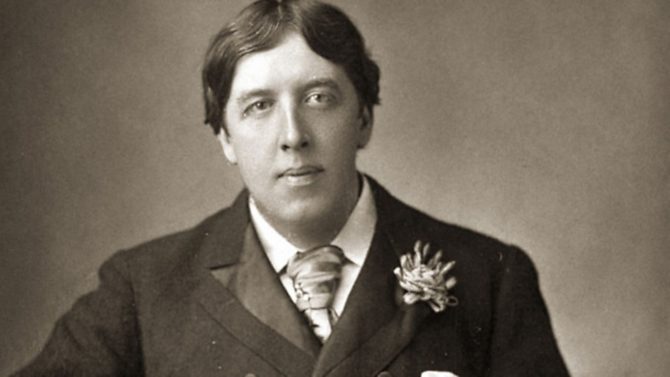Oscar Wilde and France

An exhibition on Oscar Wilde in Paris’s Petit Palais has reignited a new surge of interest in the flamboyant Irish writer. Sophie Gardner-Roberts looks at what influence France had on the writer and his works

A lot of ink has been spilt on the subject of Oscar Wilde, with false rumours circulating about his life, his work and even his death.
Born Oscar Fingal O’Flahertie Wills Wilde in Dublin on 16 October 1854, Wilde was brought up by literary parents. His father was a leading eye and ear surgeon in Ireland and his mother a poet and expert on Celtic folklore. He was educated at Trinity College, Dublin, and then at Magdalen College, Oxford.
He quickly joined the Aesthetic movement, which looked for art in every form of life and advocated art for art’s sake. Very soon, Wilde distinguished himself with his wit and flamboyance within London’s literary circles. It is said that as he arrived at customs in New York he claimed he had “nothing to declare but [his] genius”.

Wilde returned to Great Britain and in 1884 married Constance Lloyd, with whom he had two children, Cyril and Vyvyan. He worked for newspapers and magazines such as the Pall Mall Gazette and Woman’s World, but it was only in the final decade of his life that he published the works that made him famous.
He drew a lot of inspiration from French literary movements and authors. Wilde actually wrote a play in French entitled Salomé, which was translated into English in 1894 and performed in Paris in 1896. The Picture of Dorian Gray (1891) was inspired by Gothic literature, which Wilde coupled with elements from French decadent fiction. Another of his successes, Lady Windermere’s Fan (1892), followed the rules of the French ‘well-made play’ which calls for a complex plot, a build-up of suspense, a climactic scene where all the problems are resolved and a happy ending.
It was in the midst of these literary successes that Wilde’s private life caught up with him as he was attacked for his relationships. His close friendship with Lord Alfred ‘Bosie’ Douglas infuriated the latter’s father, who accused Wilde of homosexuality. Urged by his friend, Wilde sued the Bosie’s father for criminal libel but the case fell apart and, refusing to flee to France, Wilde was ordered to stand trial for gross indecency. In May 1895, he was sentenced to two years’ forced labour.
Immediately upon his release in 1897, in poor health and financially ruined, Wilde crossed the Channel and went to Normandy. He spent the summer with friends in Dieppe and then in Berneval-le-Grand, where he wrote his final work, The Ballad of Reading Gaol. Wilde and ‘Bosie’ were reunited in Rouen and left for Naples, but they soon separated and the writer came to Paris in an attempt to revive his career.
Wilde took a room in the Hôtel d’Alsace, nowadays simply called L’Hôtel, in the sixth arrondissement of Paris. He died, not of syphilis as many thought, but of cerebral meningitis resulting from a recurring ear infection, on 30 November 1900, aged 46.
Oscar Wilde landmarks to visit in France
Hôtel du Quai Voltaire, Paris
In 1883 Wilde stayed at the prestigious Hôtel Continental during one of several visits to Paris. In 1883 during a visit to Paris, Wilde, afraid of running out of money, booked into the more modest Hôtel du Quai Voltaire. The hotel is opposite the Musée du Louvre and just along from the Musée d’Orsay, and has spectacular views over the River Seine. Wilde’s room, No. 14, is still available to guests.
Tel: (Fr) 1 42 61 50 91
Café des Tribunaux, Dieppe
Wilde frequented the historic Café des Tribunaux in Normandy in the summer of 1897, much to the locals’ irritation because he and his friends would party loudly until the early hours. The café now serves traditional bistro-style food.
Tel: (Fr) 2 32 14 44 65
L’Hôtel, Paris
The Hôtel d’Alsace in Saint-Germain-des Près, where Wilde spent his final days, has been transformed by interior designer Jacques Garcia into a five-star hotel. Guests can stay in the writer’s room, renamed the Oscar Wilde Suite.
Tel: (Fr) 1 44 41 99 00
Cimetière du Père Lachaise, Paris
Wilde was originally buried in Bagneux cemetery, just south of Paris. Nine years after his death, his former lover, Robert Ross, arranged for his remains to be moved to Père Lachaise, final resting place of many artistic and literary figures where an impressive tomb depicts a ‘flying demon angel’.
Share to: Facebook Twitter LinkedIn Email


